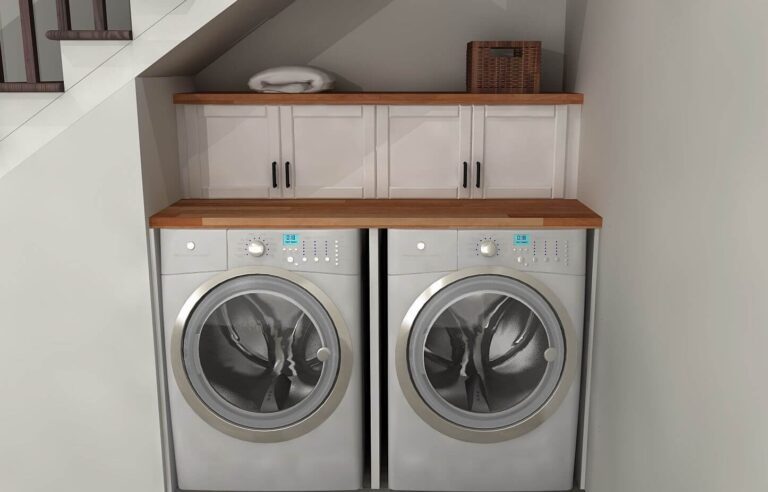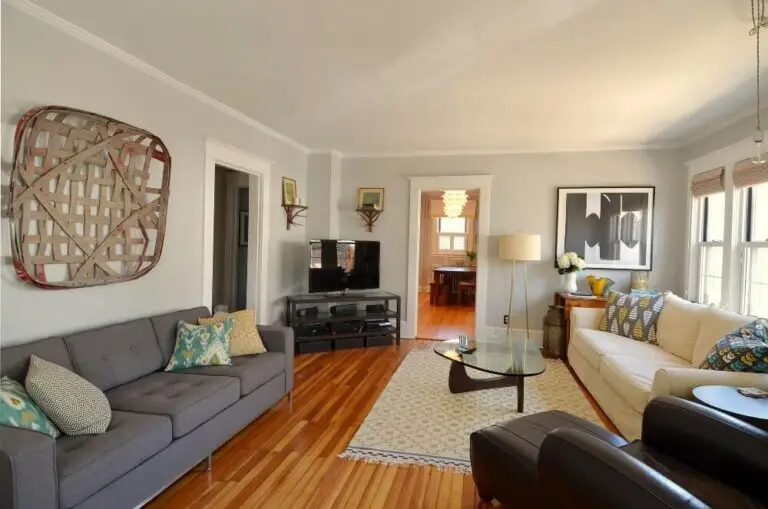Condo Vs. Apartment: Whats The Difference? (Pros And Cons)
When searching for a new home, you’re faced with numerous options to consider. One crucial aspect is deciding on the type of property that suits your lifestyle. While many may opt for a detached single-family home, others might prefer the convenience and community offered by apartments or condos. Both share similarities, but also have distinct advantages and disadvantages. In this decision-making process, weighing the pros and cons of each option is vital to finding the perfect fit.
For instance, apartments often provide reduced costs, amenities, and security, whereas condos offer greater security, better locations, and maintained common areas. However, apartments may lack privacy and have noise concerns, while condos require maintenance and repair fees. Ultimately, the choice between an apartment or condo depends on individual priorities and needs.
What is an apartment?
While apartments may have limitations when it comes to pet ownership and personalization, they also offer several perks. For instance, you can expect a hands-off approach to maintenance, as these responsibilities are typically shouldered by the landlord or property management team. Additionally, apartment living often means no association fees to worry about, freeing up more of your budget for other expenses.
Advantages of An Apartment
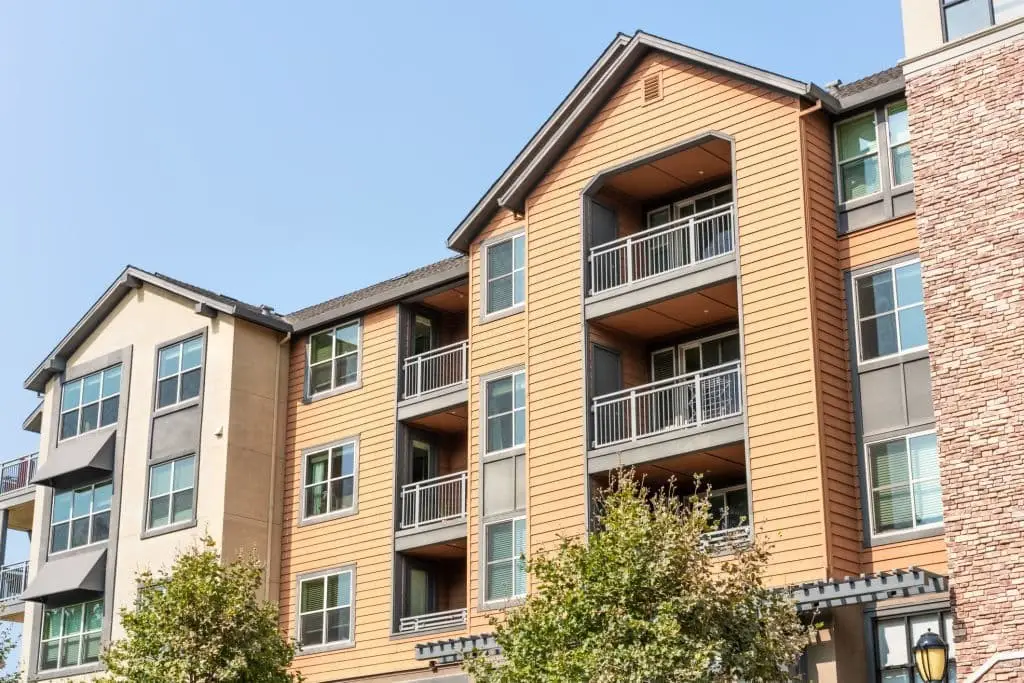
Maintenance
In the typical apartment scenario, maintenance duties fall under the landlord’s or body corporate’s purview. Many landlords employ a handyman who can tackle a broad range of issues, and for more specialized needs, a responsive contractor is just a phone call away. Some larger apartment complexes even offer a 24-hour helpline, ensuring you’re covered in case your sink clogs unexpectedly in the dead of night.
Additionally, residents don’t need to worry about tasks like sweeping streets, mowing lawns, or tending to gardens – these responsibilities are typically handled by the building’s management team.
While maintenance is generally included in your monthly rent and not an additional charge, you may still be responsible for certain non-structural upkeep within your apartment. This could include tasks such as changing light bulbs or replacing air filters.
Reduced cost
While it’s true that renting an apartment with the same number of bedrooms as a house can be more cost-effective, this advantage has been tempered by rising housing prices and stagnant mortgage rates. However, there are still numerous local property markets where rent remains relatively affordable compared to buying.
Amenities
Renting an apartment in a large building offers a unique advantage – access to a range of amenities that would otherwise be unaffordable. From swimming pools and state-of-the-art fitness centers to outdoor grilling spaces and top-notch security systems, the possibilities are endless. The best part? These perks are often included at no extra cost to tenants.
Of course, owning a home with similar luxuries comes with its own set of responsibilities – from installation and maintenance costs to the added burden of cleaning. But for renters, it’s a chance to enjoy these comforts without breaking the bank.
Utilities are cheaper
In contrast to apartments, homes tend to consume more utilities due to their larger size. Expenses like electricity, gas, cable, water, and trash disposal often increase accordingly. On the other hand, utility bills for apartments fluctuate significantly depending on factors such as apartment size, usage rates, location, and latitude, making it crucial to consider these variables when calculating costs.
Security

Large apartment complexes often prioritize their tenants’ safety by implementing robust security measures, including around-the-clock video surveillance and additional safeguards like security personnel and access codes only shared among residents. This added layer of protection typically comes at no extra cost to the occupant. Furthermore, living in close proximity to others can actually reduce one’s vulnerability compared to residing in a secluded area.
Moreover, the layout of these complexes often features multiple flats on each floor, thereby ensuring that even if an intruder manages to evade security, there will likely be at least one witness available to report any suspicious activity.
Convenience
While apartment developers meticulously study market trends and demographics to pinpoint prime locations for their complexes, often prioritizing proximity to essential services like shopping districts, educational institutions, office spaces, and recreational areas, single-family homes tend to be situated at a farther remove from these conveniences.
Sense of community
Living in a large apartment complex often fosters a sense of community and belonging among residents. The proximity to neighboring units creates opportunities to form lasting connections with fellow inhabitants, as the shared living space encourages social interactions and a sense of camaraderie. In times of need, neighbors can quickly offer support and assistance, making it easier to navigate life’s challenges.
For families with children, the convenience of having potential playmates nearby eliminates the need for lengthy commutes or elaborate arrangements, allowing parents to breathe a sigh of relief as they watch their kids form friendships with ease.
No real estate taxes

For those who call an apartment complex home, the absence of real estate taxes can be a notable advantage. Unlike homeowners, who must factor in the often-substantial cost of property taxes when calculating their expenses, apartment dwellers are spared this financial burden. The relationship between property tax rates and housing sizes is also worth noting – as property taxes increase, so too do house prices.
There are no deposits required
When it comes to securing a place to live, there’s a significant difference between purchasing a house with a mortgage and renting an apartment. With a mortgage, a sizeable down payment is usually required, but this isn’t the case when moving into an apartment building. In fact, landlords typically ask for a rental deposit that’s equivalent to just one month’s rent, which is significantly less than the down payment you’d need for a comparable home.
Disadvantages of An Apartment
Privacy
The convenience of apartment living often comes with a catch – the proximity to neighboring units can be both a blessing and a curse. One significant drawback is the potential lack of privacy due to shared walls. In fact, thin-walled apartments can make it seem like there’s little separation between your personal space and that of those around you, making it challenging to maintain confidentiality.
Noise
Sharing a living space with others can be a blessing, but it also brings its own set of challenges. One of the most frustrating aspects of communal living is the constant barrage of unwanted noise. Whether it’s the thumping bass from your upstairs neighbor’s impromptu jam session or the incessant yapping of dogs in neighboring apartments, the soundscape can quickly become overwhelming.
And if your apartment complex doesn’t have soundproofing measures in place, the noise levels can be amplified, making for a less-than-ideal living environment.
Small living space and outdoor space

When it comes to apartments, size is often the primary compromise. On one hand, smaller rooms come at a lower price point, requiring some adjustments to furniture and appliance arrangements to avoid clutter. However, this compactness also means sacrificing private outdoor spaces for the luxury of a balcony and additional floor space.
Parking issues
When it comes to apartment complex living, car owners must navigate the ever-present challenge of securing parking spots. While some complexes may offer assigned parking, this doesn’t necessarily mean your spot will be readily available at all times. In fact, even with designated parking, you may still encounter issues if a neighbor decides to occupy your space. Without an assigned spot, finding on-street parking can become a frustrating experience.
Renovation restriction
While some apartment complexes may impose strict guidelines on renovations, these restrictions are often explicitly outlined in lease agreements or communicated by landlords. This means that residents typically have limited control over their living spaces, particularly when it comes to making personalized changes. For instance, altering fixtures or painting walls might be prohibited, leaving little room for creativity and self-expression.
Decision-making systems by body corporate
A building’s body corporate is comprised of apartment owners, collectively responsible for governing the use of residential spaces. While a collaborative decision-making process is desirable, it’s not uncommon to encounter a lack of transparency and involvement, particularly among tenants who may feel disconnected from the decision-making process. In many cases, tenants have limited say in these matters, leaving them reliant on the actions of the body corporate.
Conflict with neighbors
Coexisting peacefully with neighbors is crucial for renters in apartment buildings. While it’s inevitable that occasional disagreements may arise, especially when dealing with challenging personalities, the importance of maintaining a harmonious living environment cannot be overstated. The key to resolving these issues lies not only in finding common ground but also in fostering open communication channels.
What is a Condominium?
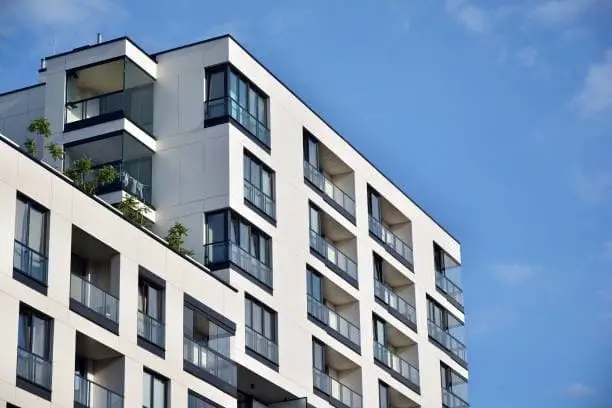
Advantages of Condominium
Offers greater security
One of the most significant advantages of residing in a condominium over owning a house in a metropolitan neighborhood is the unparalleled level of security that comes with condo living. Not only are you guaranteed safety while you’re away at work or present within your unit, but also when you take a well-deserved vacation. The added peace of mind knowing that your home and surrounding community are protected throughout the year.
Furthermore, the building’s communal areas such as hallways, stairwells, are monitored by a state-of-the-art closed-circuit security system. Additionally, condominium complexes often employ their own private police force to patrol the premises regularly, providing an extra layer of reassurance for residents.
It has a better location
While it’s not uncommon for most condominiums to be situated near bustling commercial hubs, educational institutions, office spaces, healthcare facilities, and public transportation stops, a select few may also be found in close proximity to the city center. Notably, these properties often enjoy more desirable locations within urban development regions, as apartment complexes typically occupy less space than single-family dwellings.
It has maintenance of common areas
Within the confines of a condominium building, there are specific spaces designated as ‘common use areas’. These include corridors, stairwells, elevators, walkways, parking facilities, and recreational spaces such as soccer or basketball courts, patios, gardens, and common washed areas. In essence, these shared spaces set apart a condominium from other types of residential properties.
In addition to the typical amenities found in large residences, some condominiums boast elaborate facilities like swimming pools, fitness centers, and event spaces. One of the key advantages of condo living is that the building’s association typically provides cleaning, gardening, and maintenance services for these shared areas. This alleviates the responsibility from individual owners, providing a significant benefit to residents.
Maintains more accessible prices

When considering purchasing a condo in Surrey, it’s essential to consider the location. Condos situated within gated communities or high-value areas of the city tend to be more expensive than those found elsewhere. However, if you secure a mortgage loan to finance your condo purchase, you’ll typically pay off the debt in a shorter timeframe compared to buying a house.
This can be particularly beneficial for singles or newlyweds who don’t plan on having children, as it allows them to benefit from their financial situation and potentially invest in real estate down the line.
Disadvantages of a Condo
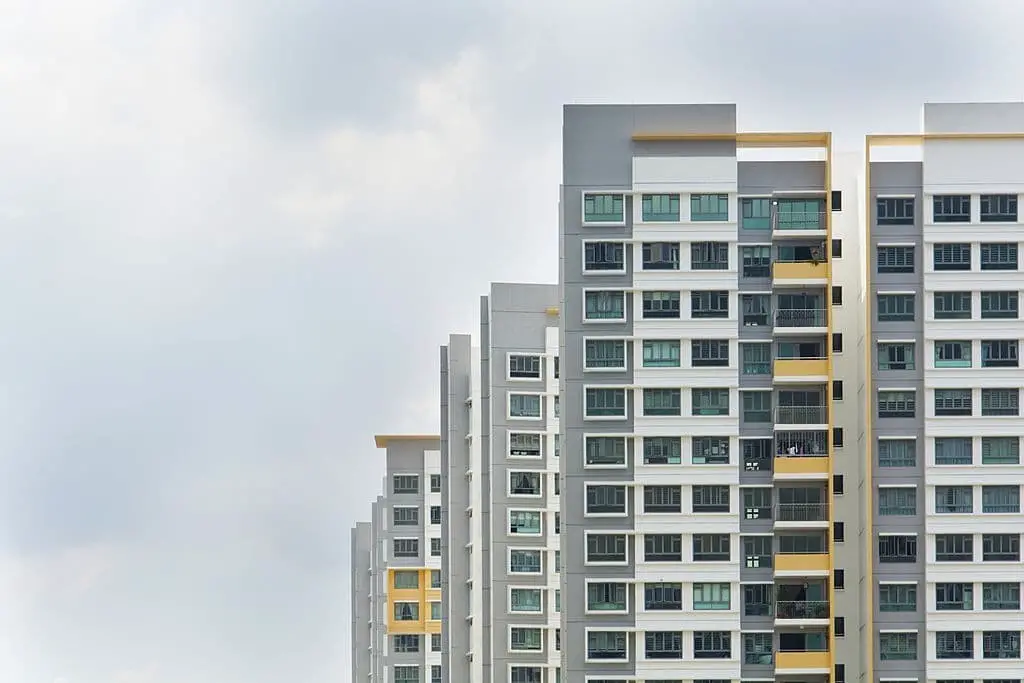
Payment for maintenance and repair fees
The maintenance service for common areas can be both a blessing and a curse for condominium residents. While it’s an attractive perk, the reality is that it can also be a significant expense if you’re not prepared to absorb the costs. The fee is typically set based on the unique characteristics of your condominium and the terms outlined in the sale contract. This means it may be paid monthly or annually, requiring careful consideration of how it fits into your overall financial plan.
Reduced space within the property
For many families with children and pets, the reduced space within a condo can be a significant drawback. One major difference between an apartment and a house is the square footage – typically much smaller in the former. This translates to fewer bedrooms, bathrooms, and often no outdoor living areas like patios. For nature lovers, this means sacrificing the ability to have a garden at home, settling instead for small-scale alternatives like container gardens or potted plants.
Furthermore, condominium residents may also find themselves unable to make significant changes to their property – whether it’s renovating or expanding – due to lack of space and potential structural limitations.
Frequent noises

While condominium living offers many benefits, there’s one potential drawback to consider: noise pollution. With apartments situated close together, sounds can easily travel between units at any hour. This issue can be addressed through neighborhood meetings or communication with management, but it still poses a challenge for those seeking peace and quiet.
Additionally, condos located in areas with high levels of external activity – think bustling streets, fitness centers, or popular eateries – can be particularly susceptible to noise disruptions. As such, it’s crucial to carefully evaluate the location before making a decision, ensuring that your chosen condo doesn’t become a source of unwanted noise.
Easy deterioration in common areas
The common areas of condos are often subject to heavy use, which can lead to damage if not properly maintained. To avoid unexpected rises in maintenance fees, it’s essential to understand the rules governing these spaces. A well-planned approach to neighborhood communication can also go a long way in resolving any issues that may arise. One of the unique benefits of condo living is the flexibility to personalize your space with unique layouts and design styles.
Additionally, many condos have more relaxed pet regulations compared to other types of residences. Nevertheless, it’s crucial to consider the costs associated with condo ownership, including condo association fees and the responsibilities that come with being part of a community association.
Difference between Condo & Apartment
Property

In contrast to apartments, condominiums are distinguished by their unique ownership structure. Typically, a condominium building is managed by an association comprising its individual owners or investors. Each apartment or unit within the complex usually has its own proprietor, setting it apart from traditional apartment buildings where the property is owned collectively. To fully comprehend the concept of condominium ownership, one must grasp the notion of horizontal property.
This type of property involves dividing a building into separate units, each with its own individual rights and use. The coexistence of two distinct types of property rights – individual ownership over specific units and collective ownership over common areas throughout the entire complex – is a defining characteristic of condominiums. For seasoned investors with sufficient capital, buying a condominium can be an attractive option, whether for personal residence or business purposes.
In this case, they have the flexibility to rent out or sell individual apartments as desired. However, when purchasing an inhabited condominium, negotiations with existing unit owners become necessary.
Rules
When you invest in a condominium, one of the key benefits is having the ability to establish the operating rules for the building. The owner’s administration, also known as the condo board, plays a crucial role in enforcing these standards, which apply to all units within the building.
This includes guidelines for administering the property and handling maintenance, as well as respecting individual unit owners’ decisions regarding interior renovations, such as installing mirrored walls or changing flooring types. While the owner’s own controls apply within each unit, the condo board also establishes rules governing aspects like fee payments, which contribute to financing the upkeep of common areas and building exteriors.
Costs

The cost of renting an apartment is determined by the length of the lease and can fluctuate at renewal time. While some apartments are available on a short-term or monthly basis, annual contracts remain the norm.
Renting an apartment’s expenses hinge on market rates and availability, with utilities often being an additional outlay. In contrast, condo rentals typically feature fixed payments throughout the rental period unless specified otherwise in the agreement.
Condo owners have full control over setting their rental rates, and some may choose to incorporate management and utility fees into the overall cost.
Amenities
The apartments within this community or condominium share common features that remain consistent throughout. However, individual units may vary depending on factors such as room count or furniture and appliance inclusions. Additionally, upgraded units can be found when an owner invests in property improvements. A range of amenities is typically offered, including free parking, laundry facilities, swimming pools, gyms, party rooms, parks, and outdoor grill areas.
These perks collectively contribute to the property’s appeal. Luxury condos often boast a broader array of details, with unique features like granite countertops, marble or wood flooring, and vaulted ceilings enhancing quality and value. Unlike unit owners and renters, condo amenities are generally similar, but inside, luxurious elements can be found that elevate the overall experience.
Typically, condominium owners are restricted from making significant structural modifications, such as removing walls or adding balconies. However, they may authorize renovations for shared building spaces.
Maintenance
When considering a place to call home, it’s essential to weigh the pros and cons of buying an apartment versus investing in a condominium. One significant advantage of apartments is the lower maintenance fee compared to the cost of maintaining an entire condo complex. As the owner of an apartment building, you can expect to guarantee 24/7 services and upkeep to ensure the structure remains impeccable at all times.
This level of responsibility can be a major plus for those who value hands-off ownership. In contrast, condominiums often require immediate issue resolution, regardless of the owner’s physical presence. This can provide a sense of security knowing that any problems will be addressed promptly, even if you’re not on site.
On the flip side, apartments typically place more responsibility on the landlord to maintain the unit over time, potentially leading to longer-term expenses as the property ages.
Privacy

When it comes to enjoying independence and autonomy in your living space, a house within a condominium complex stands out as the clear winner. Unlike apartments, houses often provide more freedom, allowing you to make choices without needing to consider the opinions of others. Additionally, many houses come with private outdoor spaces such as backyards or designated gourmet areas.
Furthermore, homeowners don’t have to worry about disturbing their neighbors at ungodly hours, like early morning furniture rearrangement or 6 am power tool sessions, since they’re not dependent on shared walls.
Property size
As urban living spaces continue to shrink due to rising costs per square meter, innovative solutions are emerging to maximize efficiency. For instance, cleverly designed multi-story dwellings can provide ample space for residents without sacrificing overall footprint. Yet, for singles or individuals without immediate family plans, the financial burden of maintaining a larger property may outweigh any potential benefits.
Ongoing expenses such as energy, gas, and cleaning costs can add up quickly, making it more practical to opt for a smaller yet efficiently designed home.
Number of residents
While shared living spaces are certainly more prevalent in high-rise apartments and condominiums, the increased density of occupants also leads to a natural tension over the use and maintenance of these areas. As the number of residents grows, so too does the strain on common spaces, resulting in wear and tear that can impact the overall integrity of the structure.
Pets and plants
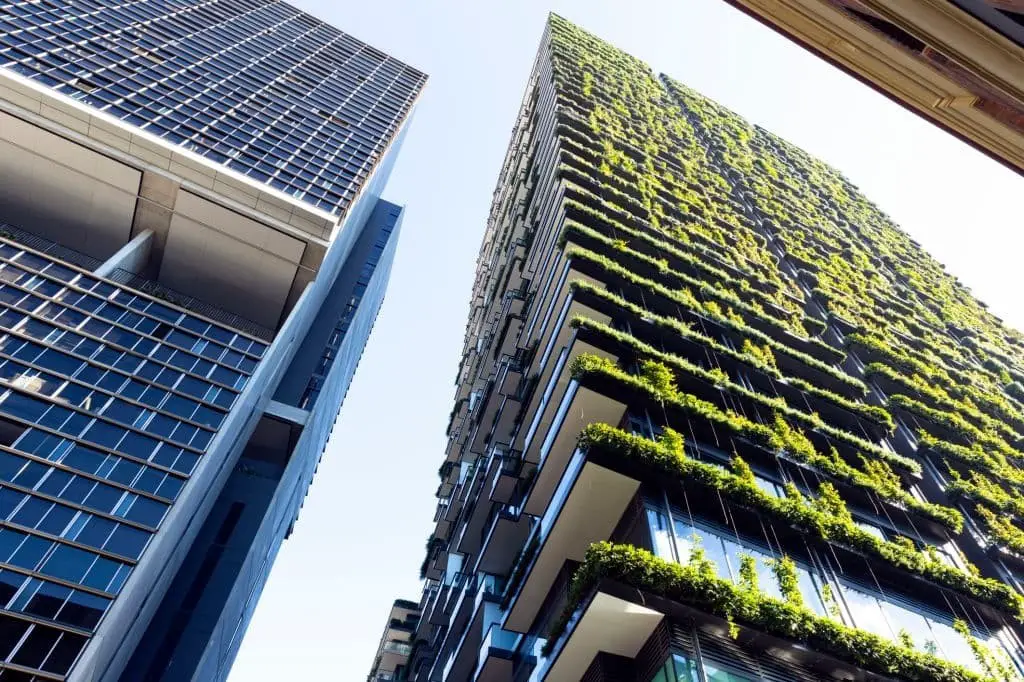
While it’s certainly possible to have plants and pets in your apartment, it’s worth considering whether a house might be a more suitable option if you prioritize having multiple animals or a larger space. For example, five dogs living in a 45 square meter apartment may not provide the most comfortable environment for either humans or animals. Ultimately, the decision comes down to balancing your lifestyle and preferences with the needs of your pets.
Value
Securing affordable apartment options in various locations has become relatively more straightforward. However, the prospect of securing a low-cost apartment within a gated condominium complex typically requires a greater upfront investment due to their generally larger size.
What is the best option?
When it comes to deciding between a condo and an apartment, individual circumstances often play a significant role. For those seeking flexibility and minimal commitment, renting an apartment might be the preferred choice. On the other hand, individuals looking to break into the real estate market or invest their savings are more likely to opt for buying a condo. Both apartments and condos have their unique advantages and disadvantages.
Before making a decision, it’s essential to consider one’s own short- and long-term goals.
Related Posts
To embark on a fulfilling career, individuals interested in building construction and sustainability may consider becoming a building code inspector. This role requires a strong understanding of local and national building codes, as well as the ability to conduct thorough inspections to ensure compliance. To get started, one must first earn a bachelor’s degree in architecture or a related field.
Following this, obtaining certifications such as the International Code Council (ICC) certification can significantly enhance job prospects. Additionally, gaining hands-on experience through internships or entry-level positions can provide valuable insight into the day-to-day responsibilities of a building code inspector. For those seeking to complement their skills in landscape design and sustainability, becoming a green building consultant may be an attractive option.
This profession involves working with architects, builders, and property owners to ensure that buildings meet environmentally friendly standards. By pursuing this path, individuals can leverage their knowledge of sustainable design principles to create environmentally responsible structures.

